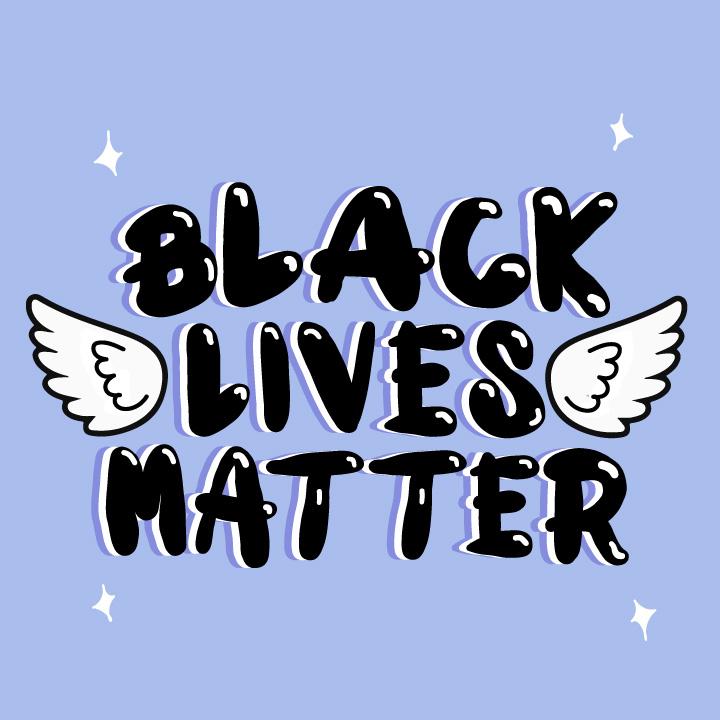By: Symara Wilson
In the last five months, protests have sparked across the world in response to several devastating acts of injustice against black people. It began in Minneapolis, Minnesota, home to George Floyd, a man killed by three Minneapolis police officers after allegedly trying to make a purchase with a counterfeit bill. Officers Derek Chauvin, J. Alexander Kueng, Thomas Lane and Tou Thao were all charged in the murder of George Floyd. From that moment, protests and riots erupted across the nation and even ventured beyond the United States. Unfortunately, George Floyd wasn’t the only killing prompting outrage. Countless other incidents have occurred since then, and even those resurfacing from years before fuel the momentum of the movement. Black people being unjustly killed by police has been an act of violence prevalent in the media as of recent years. Now, people are no longer staying silent on how they feel. Millions of people have come together everywhere in solidarity with the Black Lives Matter movement.
As protests erupted across the United States, four months have passed and Pittsburgh, Pennsylvania is still going strong in their fight for justice—and this sadly isn’t the first time. In June of 2018, 17-year old Antwon Rose ll was shot in the back in East Pittsburgh by officer Michael Rosfield, who was not found guilty, even though Antwon was unarmed. Protests filled the streets that summer and fast forward years later, Pittsburgh still marches for Antwon and several others. George Floyd, Breonna Taylor, Ahmaud Arbery, Elijah McClain, Robert Fuller, Rayshard Brooks, Oluwatoyin Salau, Daniel Prude and Jacob Blake compile just a small list of Black lives that have been at the forefront of the Black Lives Matter movement recently.
Protests in Pittsburgh have gone on for a consecutive 16 weeks. Started by Black, Young, And Educated, “Civil Saturdays” were youth-led protests that called for the amendment of PA Section 508, which is the justification for the use of force (even deadly) by law enforcement officers in Pennsylvania. Black, Young, And Educated is one of several black-led organizations in Pittsburgh fighting to make a difference in the community. Though Civil Saturdays have recently ended, protests in the city are not letting up.
Some other Black organizations are Pittsburgh Feminists for Intersectionality, an organization created to promote intersectional feminism, and SisTers, a Black and trans-led organization providing education and resources to local transgender, non-binary, and other gender-nonconforming individuals, as well as helping with transitioning and providing shelter. Protests in support of Black trans lives have been happening in Pittsburgh recently as well. With how big the Black Lives Matter movement has gotten; the Black Trans Lives Matter movement has also grown in notability and is just as important.
Crimes against those who are transgender are often times swept under the rug and don not receive attention in the media. We already know anti-transgender violence is not a new occurrence, but according to a 2018 report from the Human Rights Campaign, we also know that “it disproportionately impacts young transgender women of color, and we can identify common risk factors shared among many of its victims.” It is even said that the life expectancy of Black trans women is just 35 years old. Why do Black trans women and men face an alarmingly greater rate of violence than those who are white and/or cisgender? This is where the importance of intersectionality within activism lies.
The term “intersectionality” has caught on more in recent years, but has been around since 1989, coined by law professor, Kimberlé Crenshaw. In a paper, she argued Black women face more discrimination because of racism and sexism within our society. Since then, the term has grown and shows us that oppression can come from multiple sources. Race, class, gender, sexual orientation, and physical ability all play a part in intersectionality. In order to progress, we have to look at the way oppression overlaps, and appreciate the reality that certain marginalized groups are more susceptible to violence and discrimination than others. This is why organizations like Pittsburgh Feminists for Intersectionality and SisTers are crucial to provide advocacy and resources for the LGBTQ+ community. Tony McDade, Riah Milton, Tete Gulley, Dominique Fells, Aaliyah Denise Johnson, Nina Pop, and Monika Diamond are just a few examples of Black trans lives lost this year that protestors have also been marching for. Their stories deserve just as much attention, as well as justice.
So, when will justice finally be served?
It’s no secret that America has a very long way to go when it comes to repairing a system that was built on racism since the beginning. The Supreme Court’s recent upsetting decision in the Breonna Taylor case has only motivated protestors all over the country, especially in Breonna’s home of Louisville, Kentucky. Brett Hankison, only one of three officers involved, was indicted on charges for shooting into the neighbor’s house, not for the actual murder of Breonna in her sleep. Therefore, the end of the fight for equality is still nowhere in sight. Although many argue that the protests are doing nothing to help the movement, Elijah McClain’s case being reopened and the Supreme Court choosing to further investigate Breonna Taylor’s case demonstrates actions matter. Sharing resources, donating, making calls and emails to officials, protesting, signing petitions— it all counts.. There is much more to be done here and America’s youth has shown the world that they are not letting up anytime soon.






